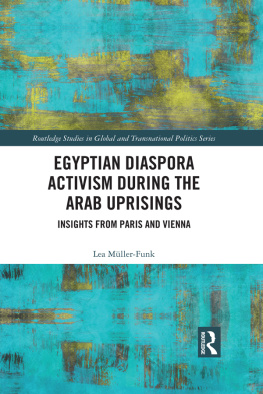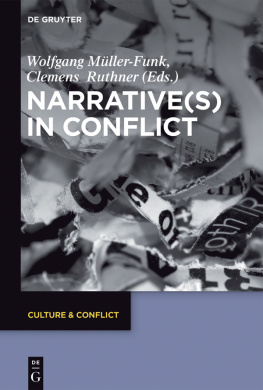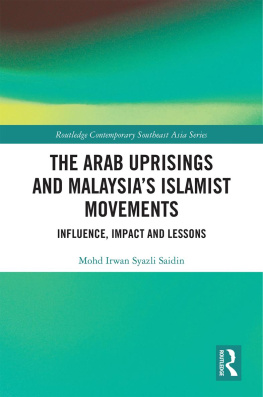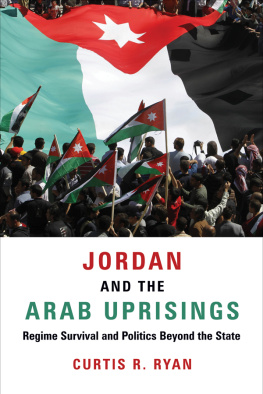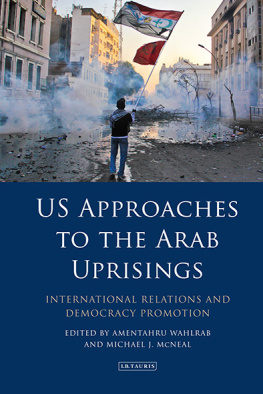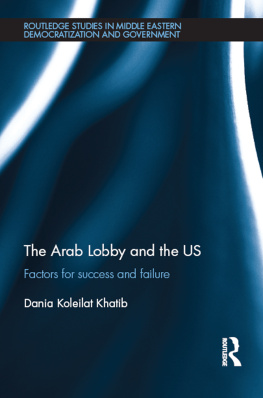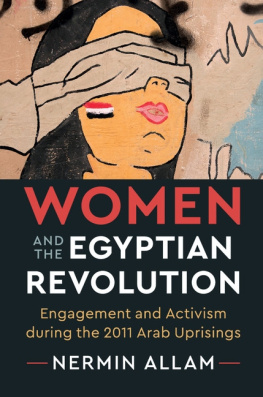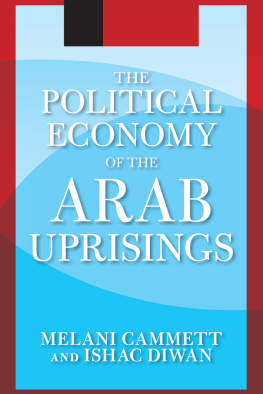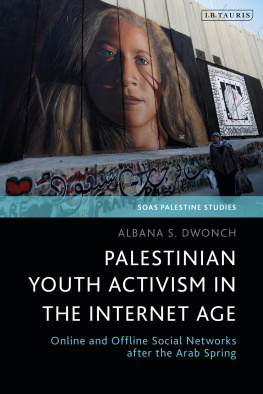Egyptian Diaspora Activism during the Arab Uprisings
Diaspora politics is often expressed as an emancipating experience and can therefore give agency to migrants. Yet, rather than interpreting transnational political practices as globally liberal or cosmopolitan, Mller-Funks findings underline that diaspora politics is a highly diverse political field that can reinforce political fragmentation among migrant collectivities.
This volume explores the controversial topic of diaspora politics: the political activities of migrants who aim to influence the domestic or foreign policy of their country of origin. The revolutions in 20102011 represented a major political upheaval in the Middle East, which politicised Arabs across borders on a grand scale. Mller-Funk explores the links between recent political developments in Egypt between 2011 and 2013 and emigration. More specifically, she examines the question of how the revolution and its aftermath influenced emigrants political perceptions and actions regarding their homeland. The book takes an interdisciplinary macro and micro approach by investigating policies that influence migrants political transnational behaviour, as well as by looking at individual activists perspectives.
This volume will be of great interest to scholars of international relations, security studies, political theory, politics, and Middle East studies.
Lea Mller-Funk is Marie Sklodowska-Curie Fellow, Department of Sociology at the University of Amsterdam, The Netherlands.
Routledge Studies in Global and Transnational Politics Series
Series editors: Chris Rumford, Sandra Halperin
Royal Holloway, University of London, UK
The core theme of the series is global connectivities and the implications and outcomes of global and transnational processes in history and in the contemporary world. The series aims to promote greater theoretical innovation and inter-disciplinarity in the academic study of global transformations. The understanding of globalization that it employs accords centrality to forms and processes of political, social, cultural and economic connectivity (and disconnectivity) and relations between the global and the local. The series editors see the multi-disciplinary exploration of global connectivities as contributing, not only to an understanding of the nature and direction of current global and transnational transformations, but also to recasting the intellectual agenda of the social sciences.
The series aims to publish high quality work by leading and emerging scholars critically engaging with key issues in the study of global and transnational politics. It will comprise research monographs, edited collections and advanced textbooks for scholars, researchers, policy analysts, and students.
The World-Making Power of New Media
Mere Connection?
Barrie Axford
Re-Living the Global City
Global/Local Processes
Edited by John Eade and Chris Rumford
Rethinking Ideology in the Age of Global Discontent
Bridging Divides
Edited by Barrie Axford, Didem Buhari-Gulmez and Seckin Baris Gulmez
Egyptian Diaspora Activism during the Arab Uprisings
Insights from Paris and Vienna
Lea Mller-Funk
For more information about this series, please visit: https://www.routledge.com/Routledge-Studies-in-Global-and-Transnational-Politics/book-series/RSGTP
First published 2019
by Routledge
2 Park Square, Milton Park, Abingdon, Oxon OX14 4RN
and by Routledge
52 Vanderbilt Avenue, New York, NY 10017
Routledge is an imprint of the Taylor & Francis Group, an informa business
2019 Lea Mller-Funk
The right of Lea Mller-Funk to be identified as author of this work has been asserted by her in accordance with sections 77 and 78 of the Copyright, Designs and Patents Act 1988.
All rights reserved. No part of this book may be reprinted or reproduced or utilised in any form or by any electronic, mechanical, or other means, now known or hereafter invented, including photocopying and recording, or in any information storage or retrieval system, without permission in writing from the publishers.
Trademark notice: Product or corporate names may be trademarks or registered trademarks, and are used only for identification and explanation without intent to infringe.
British Library Cataloguing-in-Publication Data
A catalogue record for this book is available from the British Library
Library of Congress Cataloging-in-Publication Data
A catalog record for this book has been requested
ISBN: 978-1-138-48560-0 (hbk)
ISBN: 978-1-351-04873-6 (ebk)
Typeset in Times New Roman
by Apex CoVantage, LLC
This book would not have been possible without the help and support of many valuable people.
First of all, my deep gratitude goes to all the numerous people who shared their personal and political experiences in interviews with me. Without you, this book would not have been possible.
A very special thank you is dedicated to Stephan Prochzka for his academic mentoring, friendship, and knowledge, which finally enabled me to complete this book. I would also like to thank Catherine Wihtol de Wenden for her insightful suggestions and her encouragement. Another thank you goes to Florence Faucher for enabling my stay in Oxford, which gave me the necessary time and space to think about the structure of this book, and Nicholas van Hear, who discussed this book project with me.
Another immense thank you to my parents, Wolfgang and Sabine, for believing in me and for being living examples of how to reflect and challenge the world we live in. Thanks to Anna, my inspiring sister, who continues to passionately fight for a better world. Thanks to Mijail for supporting me everywhere I go thanks for your lightness, your laugh, and your love.
Thanks to my colleagues Anna Teli and Carmen Berlinches Ramos for having made my work at Vienna University such a nice place to be. Carmen, I am deeply indebted for all the valuable advice you gave me. Thank you, Sam McIntosh, for your careful proofreading.
Finally, this book would not have come to fruition without the emotional support from and discussions I have had with a series of friends who are close to my heart. Thank you to my two Lisas, Zsolt, Martin, Masha, Shari, Kasia, and Anja.
I am especially grateful to Kerstin Brinnich, Emma Chippendale and Emilien Fargues who provided much appreciated feedback.
1
Introduction
Interest in the political role that migrants can play in their home countries has grown steadily in the last two decades. In conflicts of this period such as the Balkan wars or those arising out of the Arab Uprisings in 2011 the role of migrants and refugees as political actors has become increasingly important. However, German, Polish, Portuguese, Chinese, and Lebanese migrants have also historically continued to participate in political processes in their countries of origin, as have classical diasporic communities such as the Palestinian, Kurdish, and Armenian communities. However, with some exceptions, research on diasporas has only started to explicitly put politics at the centre of analyses of transnational processes and practices since the mid-1990s.
Transnational activism describes a form of political mobilisation that crosses borders and emphasises the rooting of actors in two or more national contexts, which is in contrast to orthodox theoretical approaches to immigration: Generations of migration researchers have perceived immigrants as persons who left behind their home and country and faced the painful process of incorporation into different societies and cultures. Immigrants who settled abroad were expected to eventually assimilate into the dominant societys sociocultural systems, while simultaneously losing their old cultural practices and political loyalties (Guarnizo, Portes, and Haller 2003, 1215). This long-held assimilation model has been questioned since the emergence of the concept of transnationalism. Basch, Glick Schiller, and Szanton Blanc have argued that increasing numbers of immigrants should be understood as transmigrants: immigrants whose daily lives depend on multiple and constant interconnections across international borders and whose public identities are configured in relationship to more than one nation state (Basch, Schiller, and Blanc 1995, 48). One of the results of the transnational paradigm has been the emergence of diaspora politics as a new field of academic research since the early 2000s, as exemplified by a series of scholars (Adamson 2002, 2004; Guarnizo, Portes, and Haller 2003; stergaard-Nielsen 2003a; Sheffer 2003; Smith 2003a, 2003b; Tarrow 2005; Lyons and Mandaville 2012).

